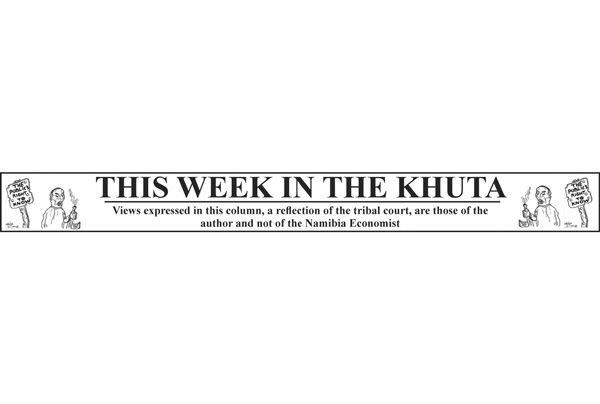
Make an assessment of industry disruptions during lockdown so that innovative solutions can be locked in

By Josef Kefas Sheehama.
The unprecedented Covid-19 disruption is accelerating the urgency for agility, adaptability and transformation. In December 2021, the annual inflation rate increased to 4.5%, compared to 4.1% recorded in November 2021. If the Bank of Namibia is worried that inflation is likely to accellerate, then they may decide to increase the interest rate on 16 February 2022 to dampen demand.
High inflation, even if only short-lived, still costs the economy. For one thing, it erodes the pay of workers if prices rise faster than salaries. And if inflation pinches hard enough, it could cause many Namibians to spend less. Rising cases of the Omicron variant around the world are adding to the worries. The new strain could prolong the disruptions in global trade that have contributed to supply shortages in Namibia and helped keep upward pressure on prices.
The supply side constraints have become worse over the course of the pandemic, while supply chain and economic risks are clearly now prone to longer and more-persistent bottlenecks, and thus to higher inflation. But during the pandemic, shuttered or understaffed factories couldn’t produce what people needed, and large manufacturers didn’t have reserve supplies because they are not designed to operate that way. There’s also been a labour shortage in some industries as people fell ill or had to care for sick relatives.
Businesses play a critical leadership role in defining a new paradigm for their business and operating models. While technological capabilities today make it possible for companies to create immense value, only those organizations that can manage the fine balance between opportunity and responsibility will be the leaders of the future. Never before have companies, individuals, organizations, societies and other entities and their staff been compelled to adapt to such massive change in such a short space of time due to the exigencies of the COVID-19 pandemic.
Most businesses have already accepted that the new normal means working effectively with distributed connected teams. They are faced with new challenges that require purposeful, scheduled communication as well as flexible technology that will enable supply chains to function efficiently and overcome obstacles.
These new trends are global and universal and cannot be ignored. The widespread adoption of information and communications technology by industry around the world is now paving the way for completely new disruptive approaches to development, production and the entire supply chain.
Not surprisingly, business disruptions are signalling a strong decline in revenue and profitability. In the medium to long term, governments should build economic resilience by building productive capacities and transforming their production and export structures, particularly towards manufacturing. Governments may seize the opportunity created by the crisis to strengthen efforts to diversify their economies and lay solid foundations for sustained growth and employment creation, as well as to enhance the capacities of their economies to absorb shocks.
As Governments and regional organizations have enhanced international cooperation and invested in further trade facilitation reforms during the COVID-19 crisis, the progress achieved should also help revive international trade. It will be important to assess what has worked and what not, so that any progress made during lockdown can be locked in.
Economic disruptions caused by COVID-19 have resulted in an unprecedented decline in international trade following the first truly global catastrophe. It is acting as a catalyst for deep transformation in global value chains utilising new technologies, growing economic nationalism and the sustainability imperative.
While trade was a major transmitter of economic disruptions across the globe, it also plays a key role in fostering economic recovery from the current crisis. Economic resilience will not be achieved by closing borders, but rather by diversifying the origin and destination of markets. Overall, trade policies that support a swift and resilient return of the private sector will help relieve governments’ burden of building back better.
To summarize, every organization should develop a visionary leadership in which short-term actions are reconciled with the most ambitious long-term goals. It is only through cooperation that a better future can be built that is more resilient, inclusive and sustainable. The sense of collaboration between business and institutions should be increased, so that the virus can be fought together and the fragile economy can recover. From now on, nothing will be the same anymore.












































